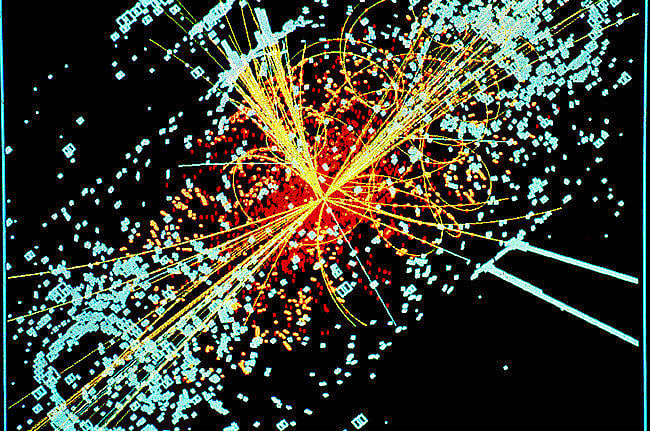
The Nobel season kicks off today amid expectations that the physics prize will honour the discovery of the "God Particle", while a Pakistani girl who was shot and nearly killed by the Taliban could receive the peace prize.
The breadth of the field of candidates exemplifies how the Nobel Prize, seen by many as the planet's most prestigious award, recognises both intellectual struggle with the fundamental riddles of nature -- and real battle against violations of basic human rights.
But it is the award for groundbreaking medical research that will be the focus of attention today at about 1500 IST, when Goeran K. Hansson, secretary of the Nobel Committee for Physiology or Medicine, steps in front of the cameras at Stockholm's Karolinska Institute to announce this year's winners.
Only tomorrow will it be clear if predictions are correct and the discovery of the Higgs Boson - widely hailed as one of the greatest scientific achievements of the past century - gets the Nobel Prize for Physics.
Without the Higgs, say theorists, we and all the other joined-up atoms in the universe would not exist.
Despite this, there is some conjecture that the Higgs will miss out. Officially, there remains a remote possibility that the new particle discovered last year is not a Higgs but some other novel particle.
Awarding the prize for the Higgs also poses a conundrum for the Nobel Committee: Should theoreticians or practitioners -- or a hard-to-decide mixture of both -- be on the podium? And how to reward a breakthrough that took the efforts of thousands of individuals?
Maria Gunther Axelsson, science editor at Swedish daily Dagens Nyheter, predicted that the prize would probably go some way towards recognising the collective nature of the effort that was behind the breakthrough.
"Francois Englert (from Belgium) is an obvious choice since he, along with Robert Brout, who died in 2011, was first to publish the theory behind the Higgs field," she wrote in the paper's Sunday edition.
"Fabiola Gianotti (of Italy) and Joseph Incandela (of the United States) will share the other half of the prize, because they were first to come up with the experimental results," she forecast.
A record 259 nominations have been submitted for this year's peace prize but the Norwegian Nobel Institute never discloses the list, leaving amateurs and experts alike to engage in a guessing game ahead of the October 11 announcement.
Malala Yousafzai, the Pakistani teen who survived a shot to the head last year by the Taliban for championing girls' education, tops the list at bookmaker Paddy Power with odds 2-to-1.